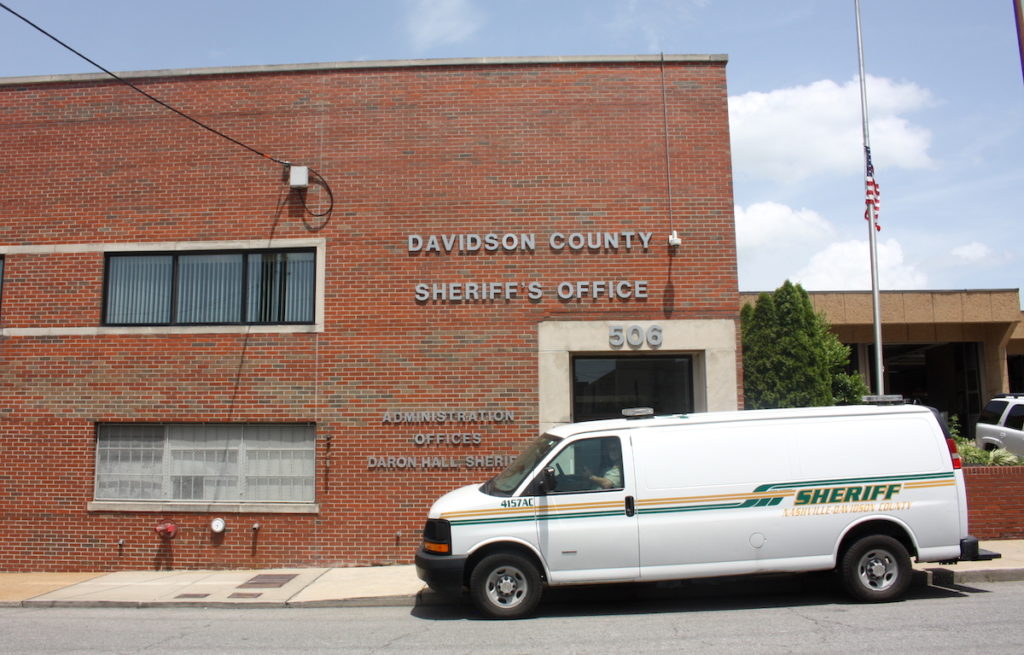
Nearly 200 people have been freed from Nashville’s jails since the first COVID-19 case was reported in the state last month.
The sheriff, public defender and district attorney are racing the clock to get as many people out as they can before COVID-19 starts spreading behind bars. And the virus has forced officials to think more critically about who should be locked up in the first place.
In a system where agencies are often at odds, criminal justice leaders are now working together to free people who would normally be locked up. The coronavirus has forced leaders to relax the rules, at least temporarily.
But Chief Public Defender Martesha Johnson says she hopes officials will continue to rely on alternatives incarceration, even after the pandemic is over.
“Are we using jail as, sort of, the last measure? Are we making sure that we reserve locking someone up for very serious cases?” she asks. “Can we look to rehabilitation? Can we look to alternatives to sending people to jail?”
Davidson County Sheriff Daron Hall has said repeatedly in recent weeks that he wants to see the jail population drop below 1,000 during the coronavirus outbreak. About 15% of inmates have already been released — including those considered medically high-risk.
District Attorney Glenn Funk is also working with the public defender’s office to release some low-level offenders nearing the end of their jail sentence.
Johnson’s office filed another motion Friday, requesting the mass release of more jail inmates.
The emergency motion asks the courts to let out anyone who is medically high-risk due to their age or underlying health conditions. It also asks judges to release anyone being held on nonviolent charges and those detained pretrial for a nonviolent crime who can’t afford bail.
The public defender wants people who have less than 60 days left on their jail sentence and those who have been rearrested for violating their parole or probation to be freed, as well.
Johnson writes in the motion that the “constant cycling of people in and out of the jail” would make it impossible to contain the coronavirus.
“By necessity, members of the non-incarcerated community, including social workers, attorneys, medical professionals and many others, must enter and leave the jail and courthouse on a daily basis,” she writes. “If the COVID-19 virus spreads within the jail, all of these persons are at a heightened risk of contracting the virus and, in turn, spreading it to others with whom they come in contact with in their homes, neighborhoods, courthouse and communities.”
Plea For State Prisoners
And on the state level, Nashville attorney David Raybin has written a letter on behalf of the Tennessee Association of Criminal Defense Lawyers, asking the Board of Parole to release all prisoners who have already been granted parole but are still behind bars. Many inmates have been approved for release but remain in prison because they’re unable to complete pre-parole requirements.
“The seriousness of the COVID-19 virus is profound,” Raybin wrote. “An epidemic can run through a prison in weeks or perhaps even days. Reducing the prison population, as suggested, would reduce the chances of infection, and enhance TDOC’s treatment capability for those inmates who remain incarcerated.”
A spokesperson for the board said in an email to WPLN News that its primary goal is to protect the public “by safely releasing offenders back into the community,” and that it won’t do so in a way that could jeopardize the lives of law-abiding citizens.
“However,” the spokesperson continued, “given the current state of the evolving COVID-19 situation, the Board of Parole has already started to identify and review potential candidates who have been granted release but may not be able to complete their required pre-release conditions through no fault of their own.”
The board is also continuing to carry out its normal parole hearings via video, though it has not scheduled extra hearings to free more people at this time.
The governor also has the authority to grant clemency, in order to release individuals from state prison. But Gov. Bill Lee’s office says he has no plans to reduce the state’s prison population outside of the parole process.
Samantha Max is a Report for America corps member.

